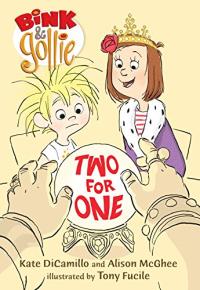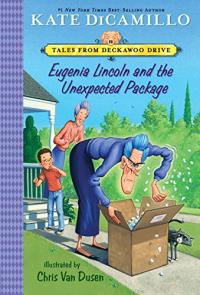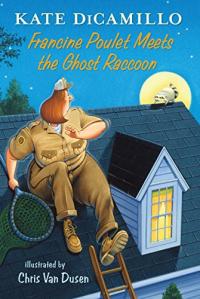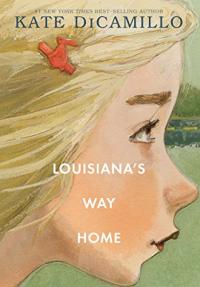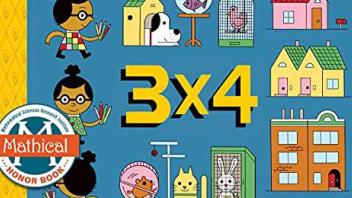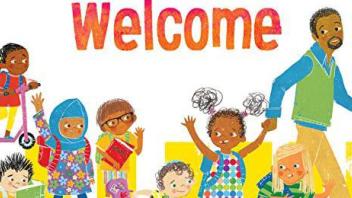
Biography
Kate DiCamillo was born in Philadelphia in 1964. Because she had pneumonia for the first five winters of her life, the doctor suggested that she would do better in a warmer climate. So, in 1969, Kate, her brother, and her mother moved to sunny Florida. Kate’s health improved and she quickly developed a fondness for the warmer South.
Kate DiCamillo attended the University of Florida and majored in English. That is when she first decided to become a writer. For the next decade she wrote mostly short stories for adults, submitted them, and collected hundreds of rejection letters. To pay the bills, DiCamillo worked a variety of jobs at places like Disney World, Surfers’ World, campgrounds, and greenhouses.
After moving to Minneapolis, DiCamillo began working at a book wholesaler. That is when she started reading children’s books and decided to try writing for a younger audience. During a long, cold Minnesota winter, DiCamillo felt homesick and wrote a story that took place in the warm South. That story, Because of Winn-Dixie, was not only accepted and published; it also received a prestigious Newbery Honor.
Eventually, DiCamillo left her job at the book wholesaler to become a full-time author. When The Tale of Despereaux won the Newbery Medal in 2004, Kate DiCamillo solidified her place as one of today’s most popular authors for young people. More recently, DiCamillo has tried her hand at writing books for an even younger audience. After delighting young readers with her whimsical Mercy Watson easy-reader series, DiCamillo published her first picture book, Great Joy, in 2007.
Kate DiCamillo and her dog, Henry, live in Minneapolis, Minnesota.
Find this author’s books on these booklists
Themed Booklist
Great Read Alouds for Third Graders
Themed Booklist
Holiday Buying Guide 2005
Themed Booklist
Holiday Buying Guide 2008
Themed Booklist
Holiday Buying Guide 2013
Themed Booklist
Holiday Buying Guide 2015
Themed Booklist
Holiday Buying Guide 2017
Themed Booklist
Holiday Buying Guide 2018
Themed Booklist
Holiday Buying Guide 2021
Themed Booklist
Holiday Buying Guide 2023
Themed Booklist
Learning to Make Responsible Decisions
Themed Booklist
New Month, New Friends, and New School Year!
Themed Booklist




